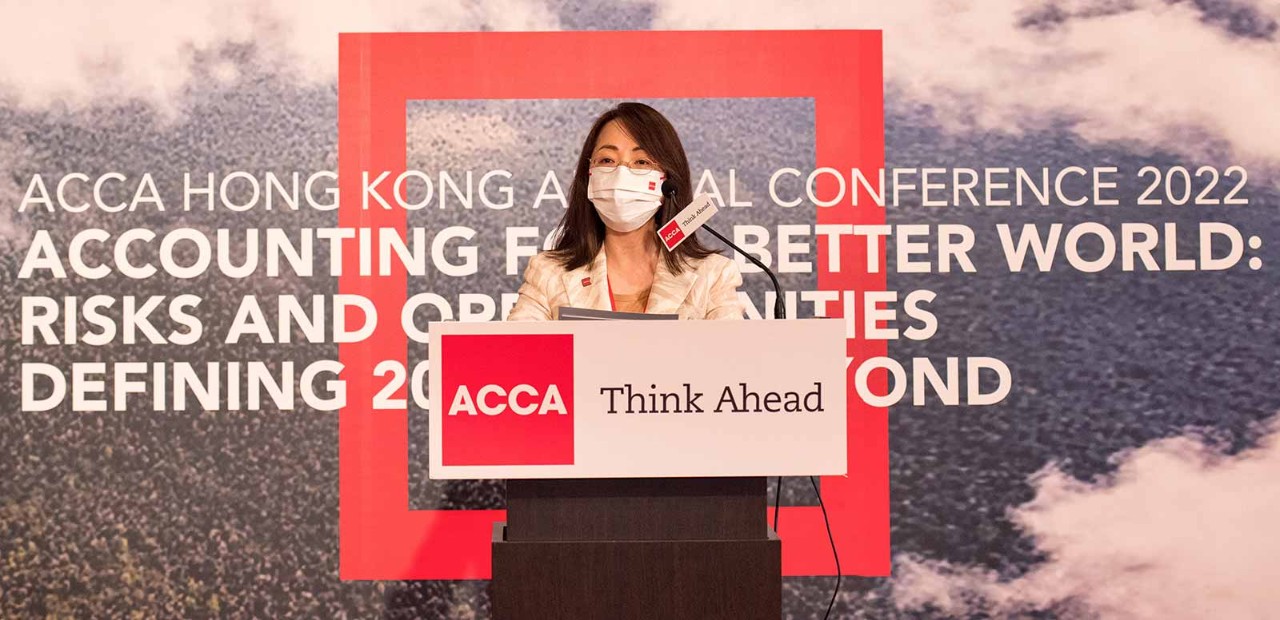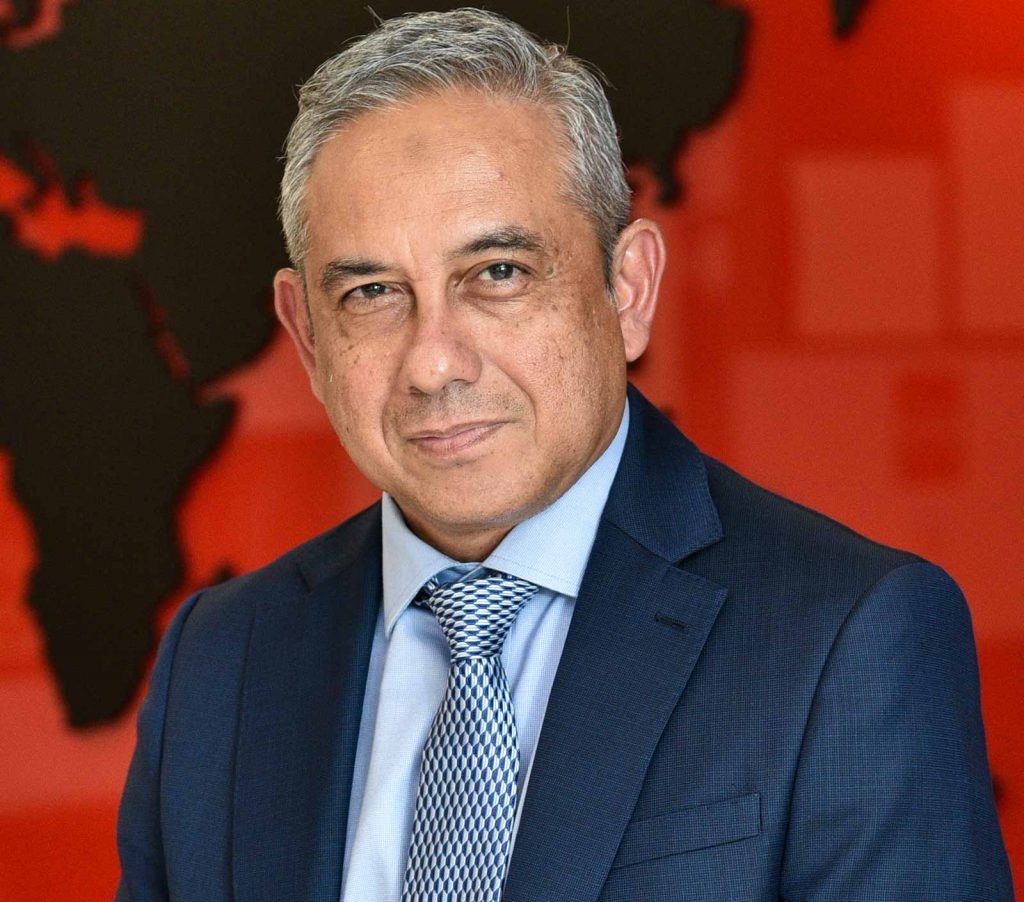
Current challenges notwithstanding, the future of Hong Kong, and its accountancy and finance sectors, is bright, with multiple strengths to build on. This was the verdict of speakers and participants at the annual ACCA Hong Kong conference.
Themed ‘Accounting for a better world: risks and opportunities defining 2022 and beyond’, the September conference was held in hybrid format for the first time since the beginning of the Covid-19 pandemic, with some participants present at the Conrad Hotel and others online.
The timing of the conference is noteworthy, as Hong Kong struggles with economic challenges and continuing pandemic restrictions.
‘Hong Kong will continue to play an irreplaceable and increasingly important role as a middleman and convergence point'


Look forward
‘The ACCA annual conference is a particularly important event for Hong Kong’s accounting community,' said Jennifer Tan, then chairman of ACCA Hong Kong, during her welcome address. 'We should look forward to the future and get prepared.’
Through a series of discussion forums, participants discussed key issues facing the profession including environmental, social and governance (ESG) issues, sustainability compliance preparation, regulatory and tax law updates, and future working models for finance teams.
In his keynote speech, Paul Chan, Hong Kong’s Financial Secretary, addressed the challenges the Special Administrative Region (SAR) faces. ‘There are many people questioning Hong Kong’s future,' he said. 'Indeed, Hong Kong is facing some challenges, such as the global political situation, soaring inflation, tightening monetary policy and weakening global economic drive. Mainland China’s economic growth is slower than expected.'
Despite the challenging short-term outlook, Chan is optimistic about the future, noting that mainland China recognises Hong Kong SAR’s achievements in finance and trade under the ‘one country, two systems’ framework.
‘Hong Kong will continue to play an irreplaceable and increasingly important role as a middleman and convergence point between the mainland and the world,’ he said.
A key area of focus, outlined in mainland China’s 14th Five-Year Plan (2021-25), is for the SAR to become more involved in the Guangdong-Hong Kong-Macau Greater Bay Area.
‘This new positioning means that the country focuses on the prospects and advantages, and also reminds us to strengthen the SAR's development momentum,’ said Chan, adding that this could generate endless opportunities for the accounting and finance industries.
'We will promote Hong Kong to become the preferred investment and financing platform for corporate governments at home and abroad'
Seven directions
These opportunities, Chan said, are likely to materialise in seven different directions.
The first direction is to promote more diversified development of Hong Kong as an international financial centre. Recent efforts include the 2018 reforms to the Hong Kong stock exchange's listing regime, enabling companies with weighted voting rights structures to list, along with the promotion of real estate investment trusts and other financial products. Hong Kong's government has also launched a cross-boundary Wealth Management Connect scheme, which aims to make investing in the mainland market easier.
A second direction, Chan explained, is to develop the internationalisation of the Chinese renminbi (RMB). Chan says the Hong Kong government will continue to build an RMB offshore ecosystem and push for more RMB-denominated investment instruments.
A third direction is to promote green and sustainable finance, in line with mainland China's commitment to reach carbon neutrality before 2060.
‘Asia’s growth and the wealth it creates are staggering. Hong Kong is the largest asset management centre in Asia'
‘In the future, we will promote Hong Kong to become the preferred investment and financing platform for corporate governments at home and abroad,' Chan said. 'We will offer some channels to guide some international funds and pair up quality green projects, and we are also exploring the possibility of Hong Kong becoming a carbon trading centre.'
In addition, there will be more efforts to encourage multinational and mainland China companies to use Hong Kong as their treasury management centre while also enabling the SAR to establish itself as an asset management centre.
‘Asia’s growth and the wealth it creates are staggering. Hong Kong is the largest asset management centre in Asia. The Hong Kong government has used different measures, including introducing different fund structures and offering tax concessions for carried interests of private equity funds operating in Hong Kong, to attract funds,’ said Chan. ‘We are also currently working to become a hub for family offices.’
The sixth direction is to enhance Hong Kong’s function as a risk management centre through measures that include tax concessions to specific insurance companies, for example.
Last, but not least, Hong Kong is committed to developing emerging areas such as fintech and virtual assets.
‘Although virtual assets might bring a lot of risks, we need to embrace the trends,’ Chan said, adding that regulators are already working on a licensing system for virtual assets providers, which has been submitted to the Hong Kong legislative council.
Ultimately, Chan said, he is confident that Hong Kong will overcome current adversities and that the SAR's prospects are bright.





